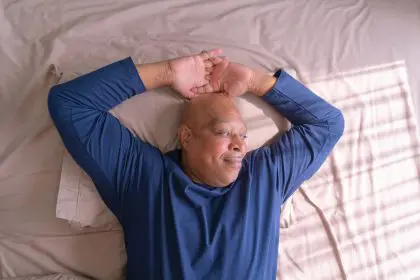Dr. Karla Higginbotham, a third-generation physician and board-certified family medicine expert, brings a compassionate and relatable touch to health care. In this exclusive interview with rolling out during National Diabetes Awareness Month, she shares her insight on the critical role of health care professionals in advocating for improved diabetes care and policies, as well as the importance of diet, lifestyle, and tailored approaches in managing diabetes, particularly within the Black community.
What inspired you to pursue a career in medicine?
Though I come from a lineage of physicians, my path to medicine was not initially clear. I explored clinical and research roles, spending time in my father and grandfather’s clinics in Chicago and Gary, Indiana. At the University of Michigan’s Undergraduate Research Opportunities Program, Dr. Richard Solomon mentored me, imparting skills in critical thinking, innovation, and community engagement.
Post-college, I worked at remarkable institutions like Planned Parenthood, Children’s Memorial Hospital and the University of Illinois at Chicago. An encounter at the University of Illinois — where a research participant mistook me for a physician and expressed a wish for more doctors like me — propelled me into a medical career. My innate desire to help people, nurtured by witnessing my family’s work, was ignited by this encounter.
How do you manage work-life balance?
As a wife to a professional husband and a mother of three small children, I’m still working on finding that work-life balance. With so many demands on my time at home and at work, I have learned that balance changes every day. Some days I have to prioritize one role over another in order to be the type of wife, mom or physician I want to be that day. I currently work a four-day work week, which has been an amazing way for me to find a better balance. On my day off, I am able to shuttle kids, be involved with the school, schedule self-care activities and plan for our family’s future.
This is National Diabetes Awareness Month. What role can health care professionals play in advocating for better diabetes care and policies?
Health care professionals play a crucial role in advocating for enhanced diabetes care and policies. This is achieved through education, policy engagement, research and public awareness initiatives. By providing education, engaging policymakers, conducting research and raising public awareness, we contribute to better treatments and interventions, improved access and enhanced diabetes care for our society.
Discuss the role of diet and lifestyle in managing diabetes and any specific recommendations you have for the Black community.
Diet and lifestyle are crucial in diabetes management. A balanced diet rich in whole grains, fruits, vegetables, lean proteins, healthy fats and fiber helps control blood sugar. Regular physical activity, including strength training, aids blood sugar regulation and overall health. Stress management through mindfulness, meditation and therapy is essential. For the Black community, tailored dietary guidance and community-based programs addressing cultural and socioeconomic factors are vital. Managing diabetes effectively requires a healthy lifestyle, and medical follow-ups ensure proper care and screenings. Understanding and addressing unique stress and mental-health challenges in the Black community are essential for better health outcomes.


















